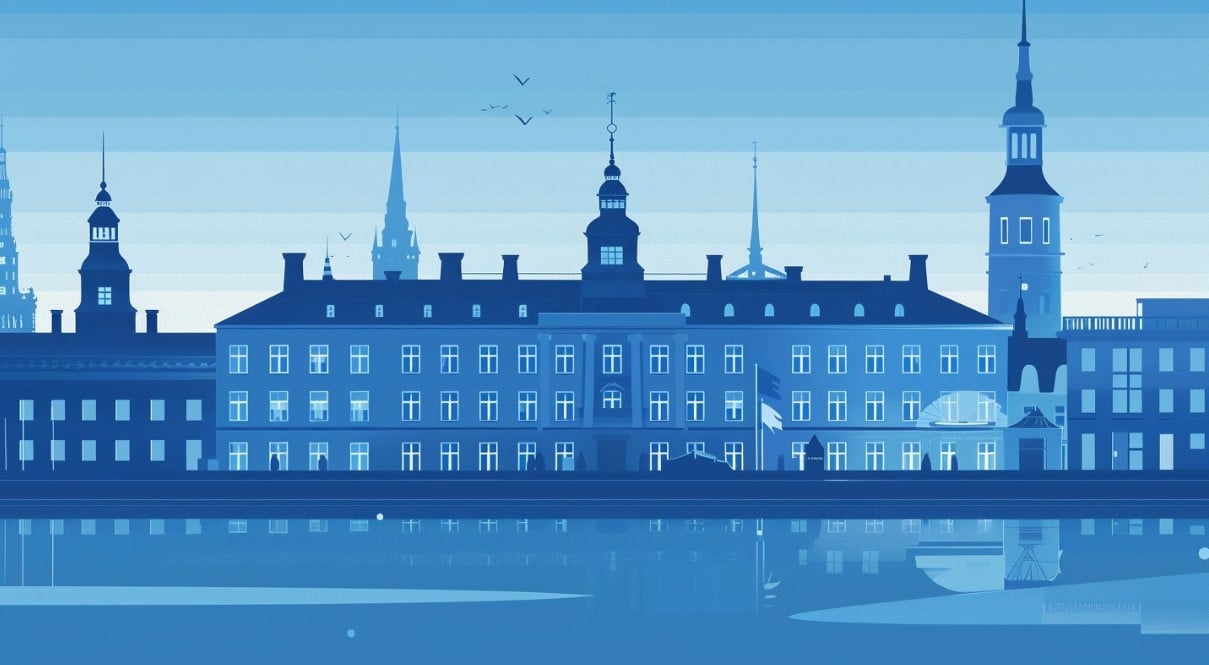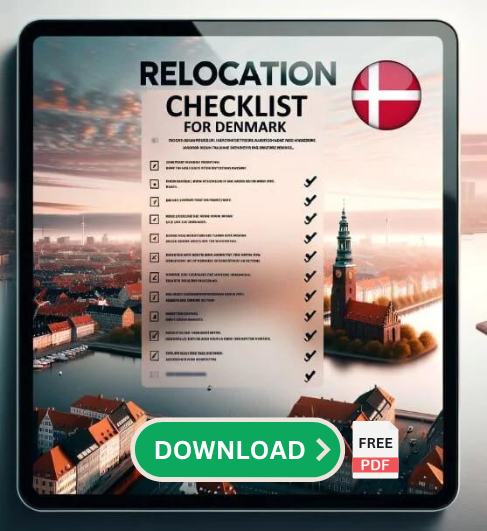The Danish Parliament, known locally as "Folketinget," is the supreme legislative body of the Kingdom of Denmark. Serving as the heart of the Danish democratic system, it is responsible for creating and modifying laws, as well as the overall direction and policies that govern the nation. Established under the Constitutional Act of Denmark, Folketinget holds the power to make decisions on behalf of the Danish people, ensuring a democratic process and representation at its core.
In the context of the Danish political system, the Parliament plays a pivotal role. Not only does it provide a platform for elected representatives to voice the concerns and aspirations of their constituents, but it also stands as a symbol of the democratic values and principles upon which modern Denmark is built. As a body of representation and decision-making, Folketinget bridges the gap between the Danish people and the decisions that impact their lives, ensuring accountability, transparency, and due process in governance. In this article, you'll find the Danish Parliament explained, tackling its history, structure, roles, and more.
Key Takeaways
- The Folketing is Denmark's unicameral parliamentary system, responsible for legislative processes.
- Historically, Denmark transitioned from an absolute monarchy to a constitutional monarchy, leading to the establishment of the Folketing.
- The Folketing's structure ensures proportional representation, fostering a multi-party system.
- The key roles of the Folketing include creating laws, overseeing the executive, and representing Danish interests.
- While the monarchy is symbolic, the Folketing maintains a constitutional relationship with it.
- Specialized committees within the Folketing scrutinize and shape legislation in specific domains.
- Denmark's membership in the EU necessitates close interaction between the Folketing and EU institutions.
The Danish Parliament Explained: Historical Context

Evolution and Development of the Danish Parliament
The roots of the Danish Parliament can be traced back to the early medieval period with the establishment of the "Danehof," a council of nobles and clergy who advised the king. However, the modern parliamentary system, as we recognize it today, began to take shape in the 19th century.
In 1848, influenced by the wave of liberal revolutions sweeping Europe, Denmark transitioned from an absolute monarchy to a constitutional monarchy. This marked a significant shift in the balance of power, placing more authority in elected representatives' hands and reducing the monarchy's autocratic control. The Constitution of Denmark, known as "Grundloven," was subsequently adopted in 1849, laying the foundation for a bicameral system, which consisted of two houses: the Folketing and the Landsting.
However, as the political landscape evolved, so did the structure of the Parliament. The Landsting, initially serving as a chamber for the more conservative and elite sections of society, was abolished in 1953. Since then, the Folketing became the sole legislative chamber, streamlining the legislative process and reflecting a more direct and singular representative system.
Key Events that Have Shaped its Current Form
Over the years, several crucial events and reforms have shaped the Danish Parliament:
- The Constitution of 1849: The adoption of the Constitution was a turning point, formally establishing a parliamentary system and affirming the rights and freedoms of Danish citizens.
- The System Change of 1901: Known as "Systemskiftet" in Danish, this change marked a pivotal moment when the executive power started to rely on the majority in the Folketing, ensuring that the government had the backing of the Parliament. This development further solidified the importance of the parliamentary system in Danish governance.
- The Constitutional Reforms of 1953: This significant reform led to the abolition of the Landsting, making the Folketing the sole legislative chamber. Additionally, it introduced the concept of female succession to the Danish throne and lowered the voting age, thereby expanding democratic participation.
Structure of the Danish Parliament (Folketinget)
Number of Members and Their Election Process
The Folketing consists of 179 members. Of these, 175 are elected in Denmark, two in the Faroe Islands, and two in Greenland. These representatives are chosen through proportional representation, ensuring that the composition of the Folketing mirrors the diverse political preferences of the electorate.
Elections for the Folketing are held at least every four years, but they can be called earlier if deemed necessary. The voting age for parliamentary elections is 18, and any Danish citizen who has not been barred from voting in court and resides within the kingdom is eligible to cast their vote.
Composition and Representation from Different Regions and Parties
Denmark is divided into three major areas for electoral purposes: Jutland, Zealand, and the islands. Within these areas, there are multiple constituencies, and each constituency has a fixed number of seats in the Folketing. The allocation of these seats is based on the number of inhabitants in each constituency.
After the general elections, seats are divided among political parties using a system called the D'Hondt method. This method ensures that the distribution of seats corresponds closely to the number of votes each party receives. However, to enter the Parliament, a party must surpass a threshold of 2% of the total national vote.
While multiple parties compete in elections, Danish politics has traditionally been dominated by a few significant parties, including the Social Democrats, the Liberals (Venstre), and the Danish People's Party, among others. This landscape, however, can shift, reflecting the dynamic nature of democratic representation.
Relationship between the Parliament and the Government
The Folketing does more than just legislate. It also plays a pivotal role in the formation of the government. The party or coalition with the majority of seats typically forms the government. In the case where no party has a clear majority, the Monarch will usually invite the leader of the largest party to form a government. However, this government must always maintain the confidence of the Folketing to stay in power.
Key Functions and Roles
Legislative Process: How Laws are Proposed and Passed
The primary role of the Folketing is to propose, discuss, and pass legislation. This process can be initiated by either the members of the Folketing or by the government itself. The journey of a bill includes several stages:
- First Reading: The proposed legislation is presented and debated for the first time. There's no vote at this stage.
- Committee Stage: If the bill proceeds, it's referred to a relevant parliamentary committee. These committees dive deep into the specifics of the bill, possibly consulting with experts and stakeholders. They may suggest amendments or alterations before sending the bill back for its second reading.
- Second Reading: The bill, with the committee's recommendations, is debated once more. Following the debate, a vote is taken.
- Third Reading: The bill is presented for a final debate and vote. If it passes this stage, it moves on to the monarch for royal assent.
- Royal Assent: While largely ceremonial in today's context, the monarch's approval is still a required step. Once the monarch gives assent, the bill becomes law.
Budgetary Role: Overseeing and Approving the National Budget
The Folketing has a crucial role in overseeing the nation's finances. Every year, the government presents a proposed budget detailing the anticipated revenue and expenditures for the upcoming year. The Folketing reviews, debates, and either approves, modifies, or rejects this budget. This ensures democratic oversight over the nation's financial matters and prevents unchecked government spending.
Representation: Ensuring the Voices of Danes are Heard
The elected members of the Folketing are representatives of the Danish populace. Their role is not just to legislate but also to voice the concerns, needs, and aspirations of their constituents. They engage in debates, question the government, and participate in committee work to ensure that the interests of the people are at the forefront of decision-making.
Oversight: Role in Keeping a Check on the Government's Activities and Decisions
One of the vital checks and balances in any democracy is the legislative body's ability to oversee the executive. The Folketing exercises this role by questioning government ministers, conducting inquiries, and, if necessary, calling for votes of no confidence. This oversight ensures that the government remains accountable to the people and adheres to the principles of good governance.
Relationship with the Monarchy
Constitutional Monarchy's Role in the Legislative Process
Denmark is a constitutional monarchy, which means that while there is a monarch, the actual governance of the country is carried out within the framework of a constitution. This constitution delineates the roles and powers of different branches of government, including the relationship between the monarchy and the Folketing.
Historically, the Danish monarchs held significant power, but over time, with the establishment of the constitution and the growth of parliamentary democracy, the monarch's role has become largely ceremonial.
In the current legislative process, once the Folketing has approved a bill in its third reading, it is presented to the monarch for royal assent. This step is a formality, and in practice, the monarch always gives their assent. However, it serves as a symbolic gesture, linking the modern democratic process to the historical traditions of the Danish state.
Historical Shift from Royal Autocracy to Parliamentary Democracy
The evolution of the Danish monarchy's role reflects the broader historical and political changes in Denmark. In the earlier periods, the monarch held autocratic powers, governing with little to no input from the general populace or representative bodies. The 19th century, however, witnessed a series of transformations, most notably the adoption of the Constitution in 1849. This marked the beginning of Denmark's journey from an absolute monarchy to a constitutional one, emphasizing the importance of democratic representation and limiting the powers of the monarch.
Over the subsequent decades, the balance of power continued to tilt in favor of the Folketing, rendering the monarchy more symbolic in nature. Today, the Danish monarch, while revered and respected as a national symbol, does not play an active role in the day-to-day governance of the country. Instead, the monarch's duties are mainly representative, attending official functions, ceremonies, and playing a role in preserving and promoting Danish culture and heritage.
Committees and Special Groups
Role of Committees in Specialized Areas
Committees play an indispensable role within the Folketing, allowing for detailed examination and expertise in specific areas of governance. These specialized groups are responsible for reviewing proposals, examining evidence, consulting with experts, and making recommendations. Given the vast scope of legislation and the depth of expertise required in certain fields, committees ensure that decisions are well-informed and comprehensive.
How These Committees Function and Influence Decision-Making
- Formation: At the beginning of each parliamentary session, committees are formed, with members assigned based on their expertise, interest, and party representation. The size and number of committees can vary, but each committee typically focuses on a specific domain, such as finance, foreign affairs, or health.
- Review Process: Once a bill is proposed, it often gets referred to the relevant committee for detailed scrutiny. The committee will investigate the bill's implications, its feasibility, and its potential impact. This may involve public hearings, consultations with experts, or gathering evidence from various stakeholders.
- Recommendations: After a thorough review, the committee will present its findings and recommendations to the full Folketing. This report might suggest amendments, support for the bill, or its rejection. These recommendations are influential and can significantly shape the final version of the legislation.
- Continuous Monitoring: Besides working on new bills, committees also have an ongoing role. They monitor the implementation of laws, oversee government departments relevant to their domain, and ensure that the executive branch's actions align with the legislative intent.
Common Committees and Their Areas of Focus
| Committee Type | Primary Focus |
| Finance Committee | National budget, public expenditures, fiscal policies |
| Foreign Affairs Committee | International relations, treaties, collaborations |
| Defence Committee | National defense, military deployments, security policies |
| Health Committee | Healthcare policies, public health initiatives, medical industry |
While the specific committees can vary based on the needs of the session, some standard committees in the Folketing include:
- Finance Committee: Responsible for matters related to the national budget, public expenditures, and fiscal policies.
- Foreign Affairs Committee: Focuses on Denmark's international relations, treaties, and collaborations with other nations.
- Defence Committee: Deals with issues related to national defense, military deployments, and security policies.
- Health Committee: Concentrates on healthcare policies, public health initiatives, and the medical industry.
Special Groups
In addition to the standard committees, the Folketing sometimes establishes special groups or temporary committees to address urgent or unique issues. These might be set up in response to sudden events, crises, or emerging challenges that require immediate attention. These groups function similarly to regular committees but are often time-bound and dissolve once their specific objective has been achieved.
Interaction with the European Union
Denmark's Membership in the European Union
Denmark joined the European Union (EU) in 1973, marking the beginning of a multifaceted relationship between the nation and the broader European community. Since then, the EU's influence on Danish policies, regulations, and economic activities has grown, necessitating a close interaction between the Folketing and EU institutions.
The Folketing's Role in EU Matters
Legislation Review
One of the Folketing's primary roles concerning the EU is to review EU-related legislation. Given that EU laws and regulations can have direct implications for Denmark, it's crucial for the Folketing to understand, debate, and, if necessary, adapt or implement these in the Danish context.
Representation in EU Institutions
While the European Parliament is the primary legislative body of the EU, national parliaments, including the Folketing, play a significant role in representing their countries' interests. Danish MEPs (Members of the European Parliament) often liaise with the Folketing to ensure they reflect Denmark's stance on various EU issues.
Oversight of Government Actions in the EU
The Folketing oversees the actions and positions taken by the Danish government in EU meetings, especially in the Council of the European Union, where national ministers participate in decision-making. This oversight ensures that the government's positions align with the broader interests and values of the Danish populace.
Special Committee on European Affairs
To effectively manage its interactions with the EU, the Folketing established the European Affairs Committee. This committee:
- Monitors ongoing developments within the EU.
- Briefs the Folketing on significant EU decisions, negotiations, or changes.
- Engages with the government before major EU meetings, providing guidelines or mandates to ensure Denmark's representation aligns with national interests.
Opt-outs and Special Arrangements
Over the years, Denmark has negotiated certain opt-outs and special arrangements with the EU, reflecting its unique position and priorities. For instance, Denmark opted out of parts of the EU's Justice and Home Affairs policies, the Eurozone, and the Common Defence Policy. The Folketing plays a crucial role in deciding these opt-outs, often in consultation with the Danish public through referendums.
Public Engagement and Accessibility
The Role of Transparency in Democracy
A thriving democracy relies heavily on an informed and engaged public. The Folketing recognizes the importance of this principle and strives to maintain a transparent relationship with the Danish people, ensuring they are well-informed about parliamentary activities and decisions.
Channels for Public Engagement
Public Gallery: The Folketing's sessions are open to the public, allowing citizens to watch debates, discussions, and voting sessions. This direct access fosters a sense of connection between the public and their representatives.
Online Presence: The Folketing's official website offers a comprehensive resource for those wanting to stay informed. Here, one can find updated information about upcoming sessions, recent decisions, committee reports, and more. Live streaming of sessions and archived recordings also enhance accessibility for those who cannot attend in person.
Public Hearings: On significant issues or proposed legislation, the Folketing sometimes holds public hearings. These forums provide an opportunity for citizens, experts, stakeholders, and interest groups to voice their opinions, concerns, and suggestions directly to the members of parliament.
Educational Initiatives: The Folketing organizes and supports various educational initiatives aimed at fostering a deeper understanding of the democratic process. This includes tours of the parliament building, educational materials for schools, and outreach programs.
Channels for Public Feedback
Constituency Clinics: Many members of the Folketing regularly hold clinics or open sessions in their constituencies. This allows constituents to meet their representatives, discuss issues, seek assistance, or provide feedback.
Online Portals and Feedback Mechanisms: The Folketing's digital platforms often come equipped with feedback mechanisms. Citizens can submit queries, opinions, or concerns, ensuring their voices are heard even between election cycles.
Engaging Through Social Media: Many members of the Folketing are active on social media platforms, which offer an informal and direct channel for engagement with the public.
Ensuring Accessibility for All
Inclusivity is a cornerstone of the Folketing's public engagement approach. Efforts are made to ensure that the parliament and its proceedings are accessible to everyone, including those with disabilities. This includes physical accommodations in the parliament building, as well as digital tools and resources to aid those with sensory or cognitive impairments.
Challenges and Criticisms
In any democratic system, it is natural for a legislative body to face challenges and criticisms. Such scrutiny is often a sign of an engaged public and can lead to improvements and reforms. The Folketing, as Denmark's primary legislative institution, is no exception and has encountered various challenges and criticisms over the years.
Balancing National and EU Interests
With Denmark's membership in the European Union, the Folketing often finds itself in a position where it must balance national interests with broader EU directives and regulations. At times, this balance can be delicate, leading to debates about sovereignty, national identity, and Denmark's role within the EU.
Transparency and Accountability
While the Folketing has made significant strides in enhancing public engagement and transparency, there are occasional criticisms regarding the clarity of certain decisions or the processes behind them. This can lead to calls for more in-depth public consultations or clearer communication strategies.
Political Fragmentation
The multi-party nature of the Danish political landscape means that coalition governments are common. While this can ensure a broad representation of views, it can also lead to challenges in reaching consensus or stable governance. Political fragmentation can sometimes result in prolonged negotiations or shifting alliances, which critics argue might slow down legislative processes.
Representation and Diversity
As society evolves and becomes more diverse, there is a growing emphasis on ensuring that all segments of the population are adequately represented in legislative bodies. While the Folketing has seen increasing diversity over the years, there are still discussions about whether it fully represents all demographics, particularly in terms of gender, ethnicity, and socioeconomic background.
External Influences and Lobbying
Like many parliaments worldwide, the Folketing is not immune to discussions about the influence of external groups, be they corporate entities, interest groups, or lobbyists. Questions about campaign financing, potential conflicts of interest, or the undue influence of certain groups are topics of ongoing debate.



![How to Apply for Danish Citizenship: A Complete Guide ([year]) danish citizenship](https://denmarkexpat.com/wp-content/uploads/2024/05/danish-citizenship-150x150.jpg)

![Immigration to Denmark: How To Immigrate to Denmark in [year] Immigration to Denmark](https://denmarkexpat.com/wp-content/uploads/2023/09/Immigration-to-Denmark-150x150.jpg)
